The investigation focused on the translation of the arab shading element - the Mashrabiya typology - into light and thin earth tiles 3D printable as a continous line.
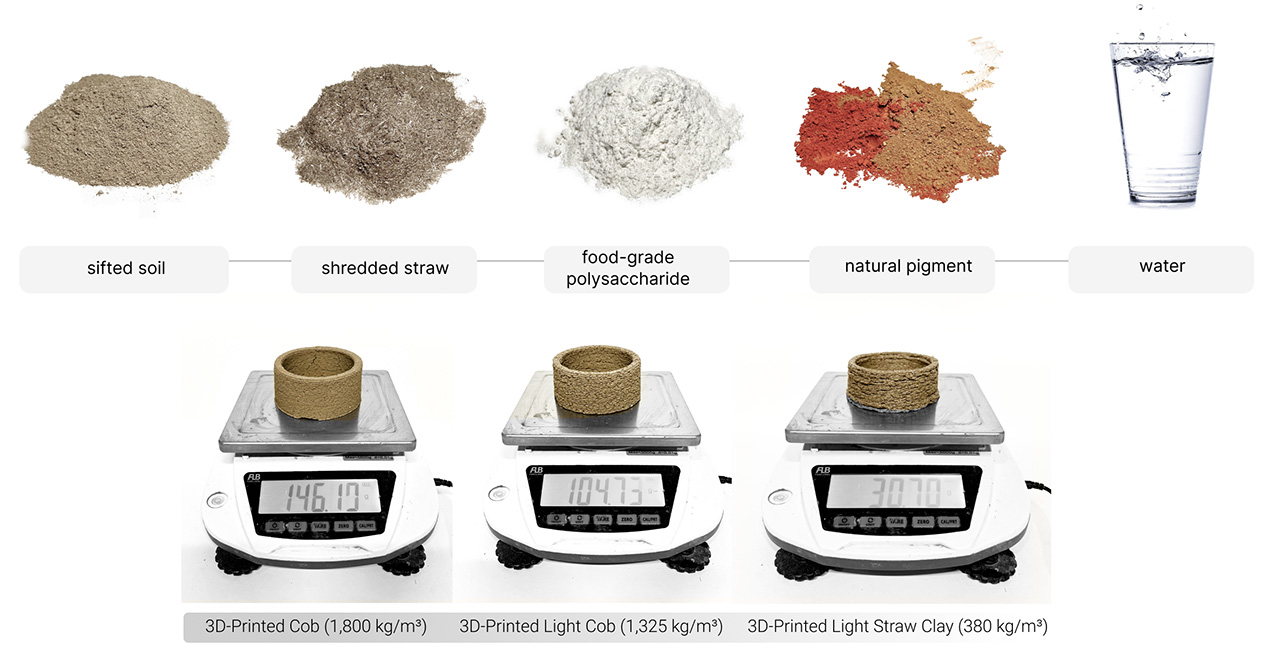
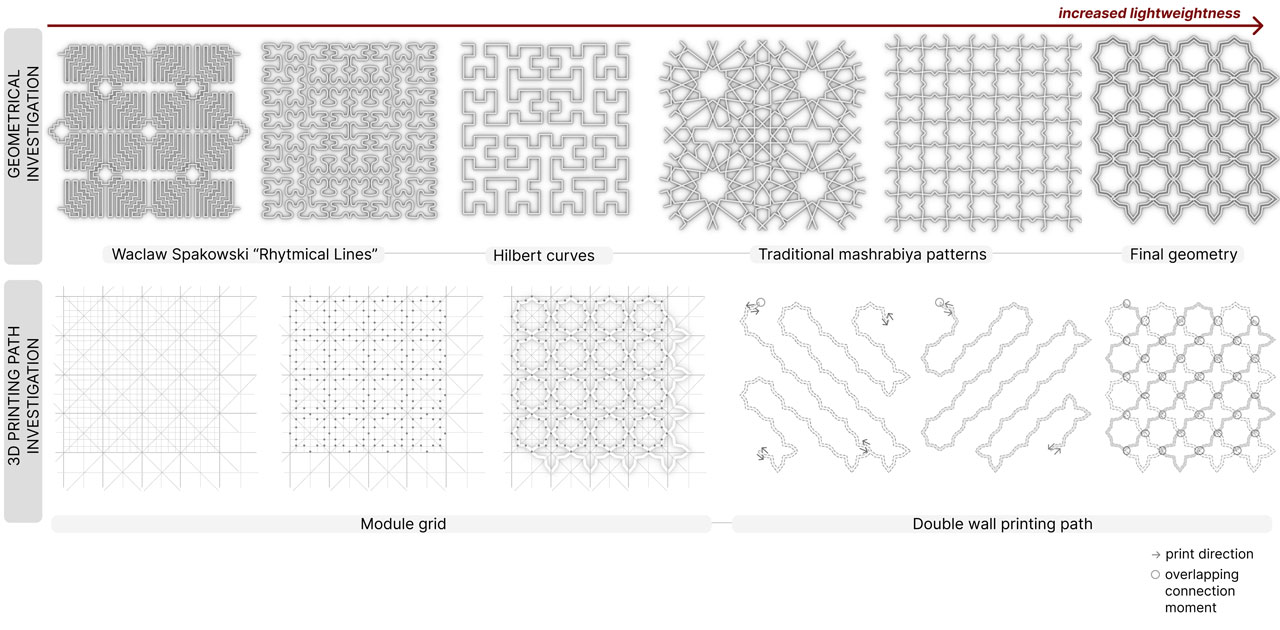
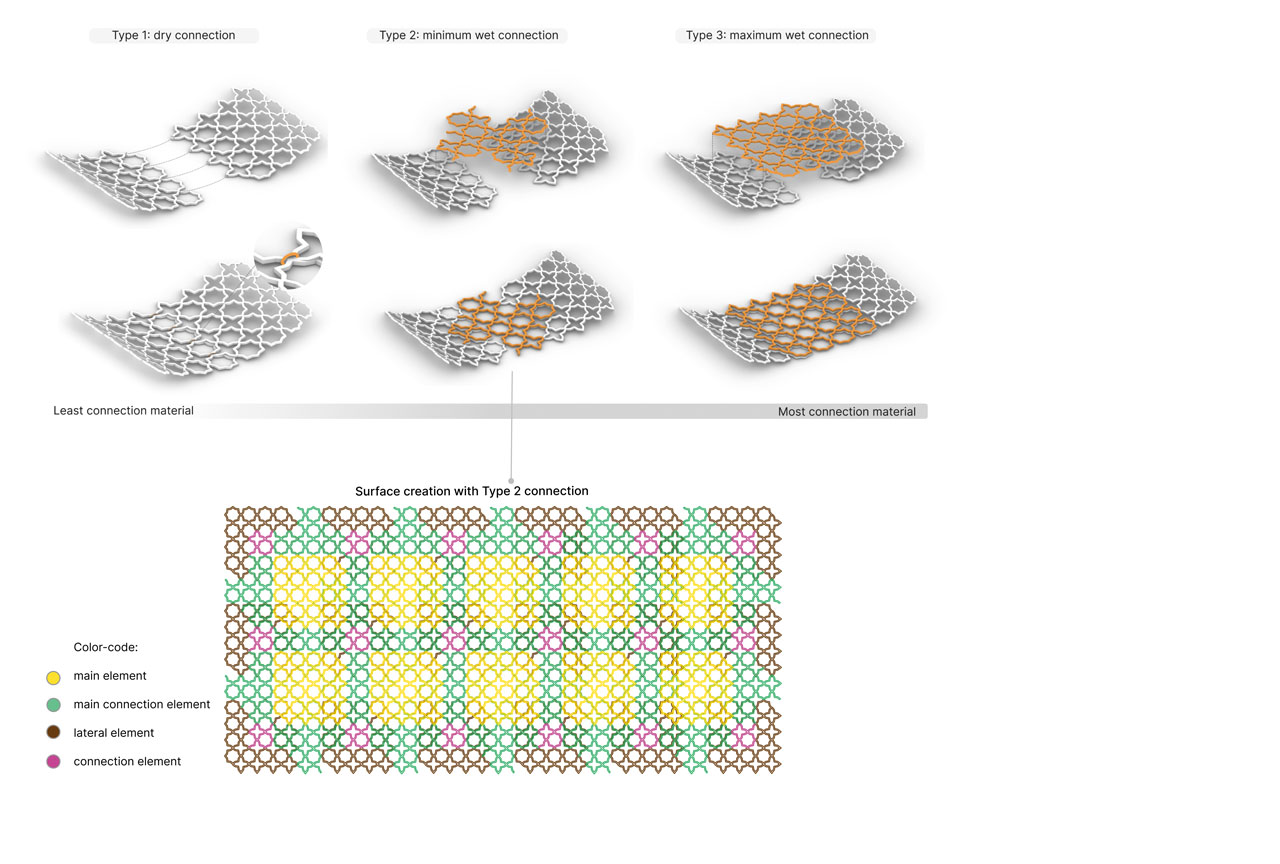
The significance of this research lies in the development of a methodology for identifying novel mix design for digital fabrication, by increasing carbon storing vegetable fiber content within digital earth, and by creating a range of structurally sound natural 3D printed assembly types: from mass-insulation walls to paper-thin lightweight partition assemblage.
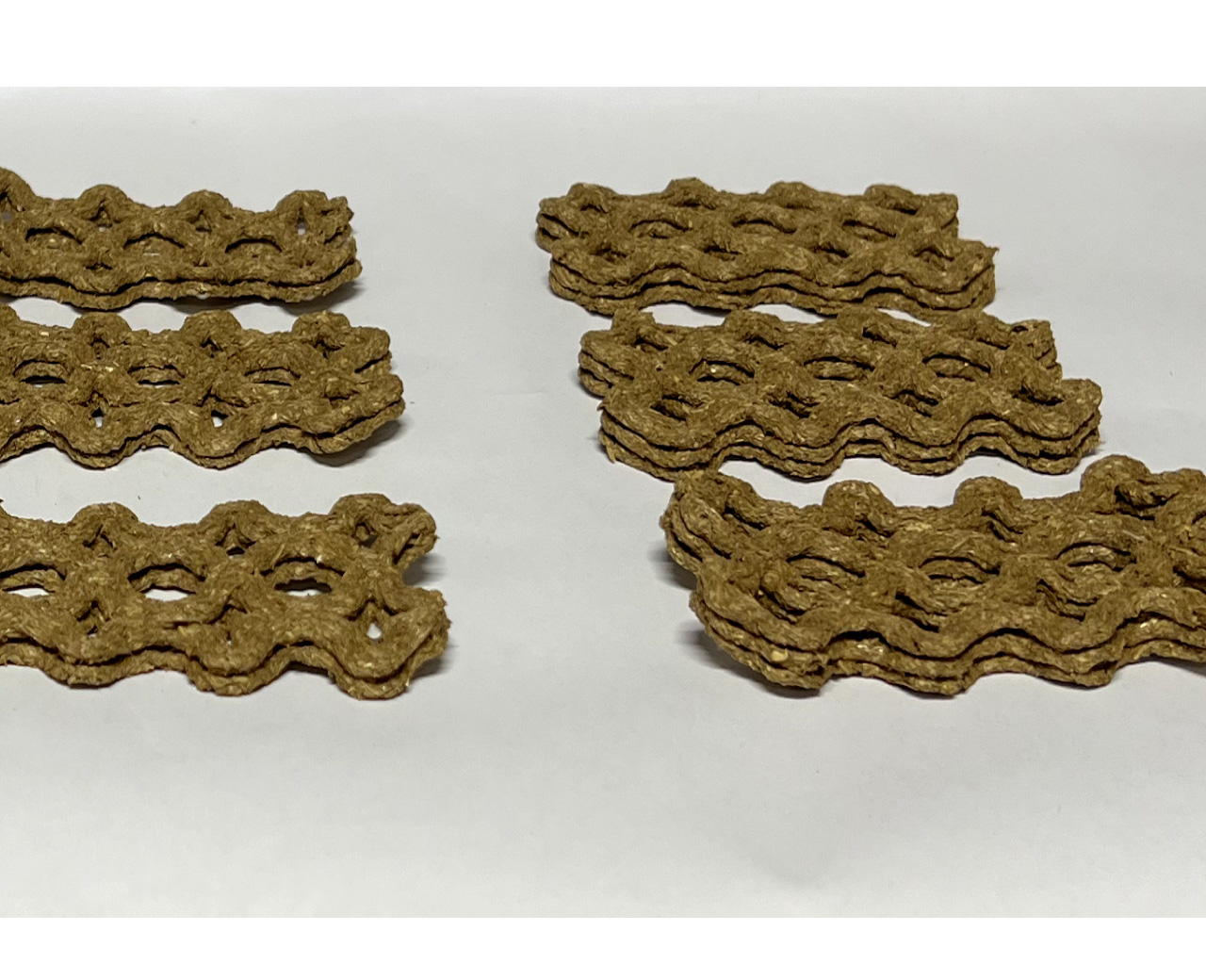
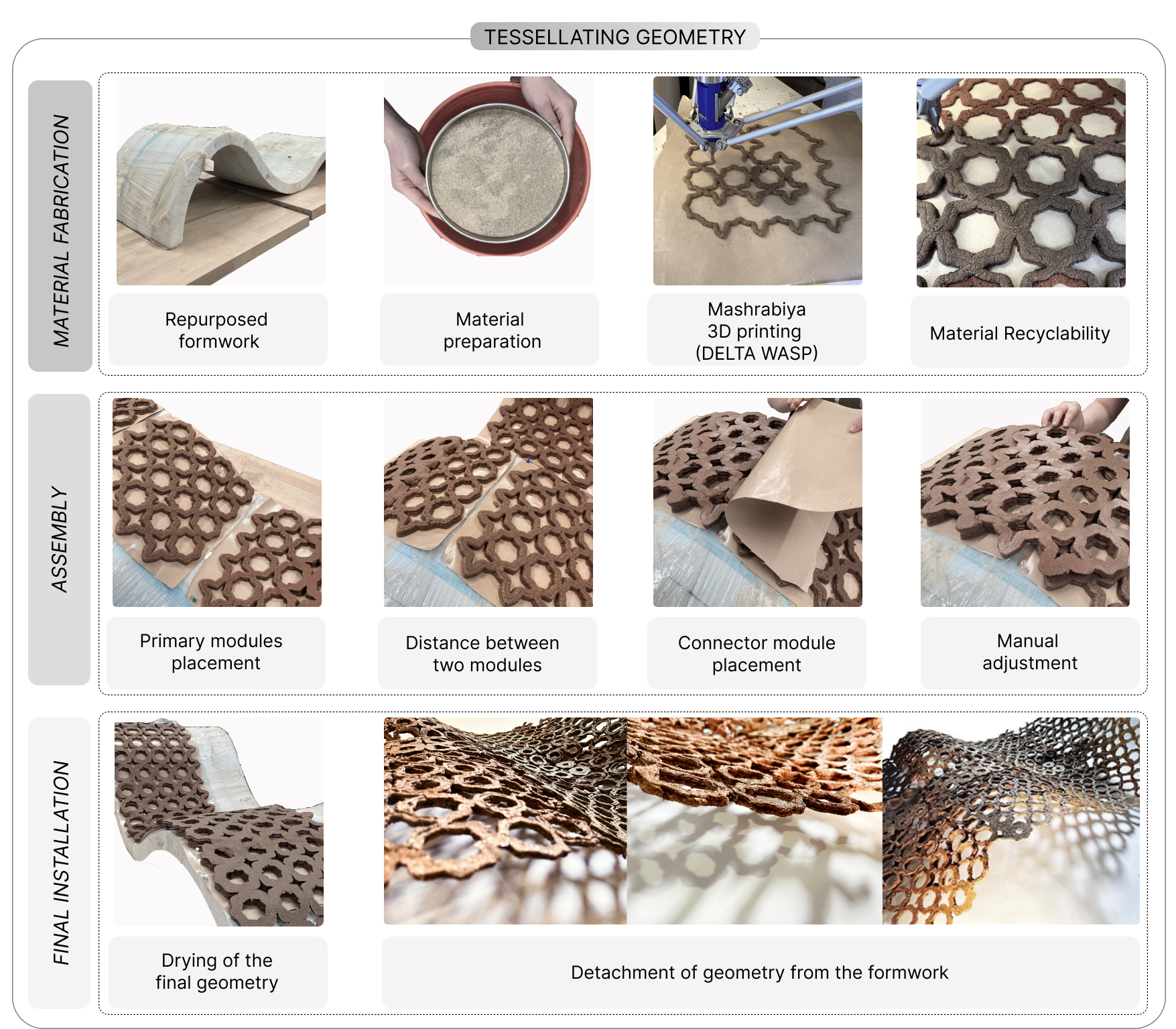
The final piece was installed in 1014 Space for Ideas, as a hanged artifact that proposes an interplay of light and shadow.
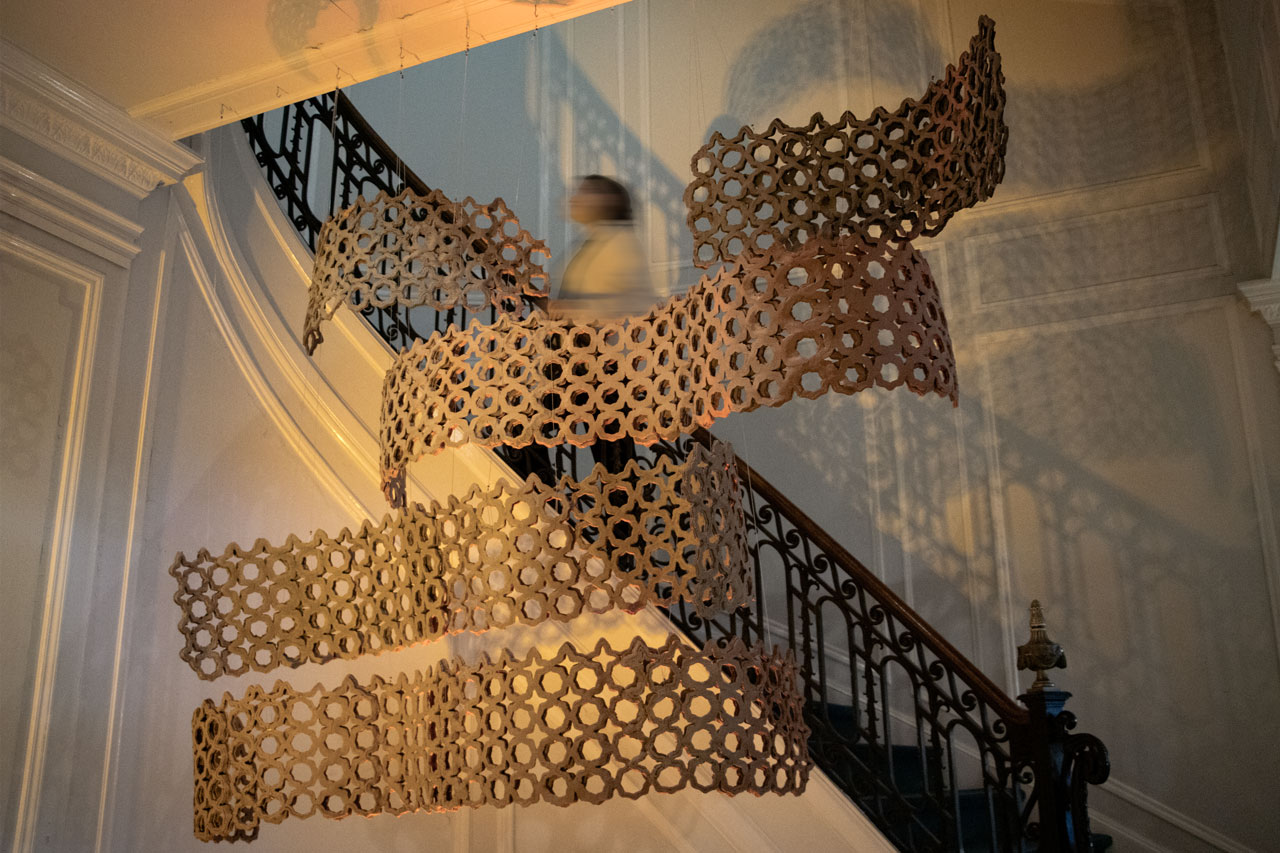
Exhibition
1014 space for ideas 2023
Duration
April - June 2024
Location
New York City, USA
Collaborators
Prof. Lola Ben-Alon (PI, Columbia University)
Research assistants
Tashania Audrey Akemah
Contribution
- 3D printing techniques and digital fabrication using Grasshopper/Rhino
- Research and development of earth- and fiber-based materials for 3D printing
- Data and research findings dissemination in high level scientific journals
- Fabrication, assembly strategy and final mounting
External links
https://www.arch.columbia.edu/research/labs/17-natural-materials-lab/mashrabiya
Publications
O.B Carcassi, T. Akemah & L. Ben-Alon, (2024), 3D Printed Lightweight Earth-Fiber: From Tiles to Tessellations, 3D Printing and Additive Manufacturing (Biobased Design Special Issue), https://doi.org/10.1089/3dp.2023.0341
Photo Credits
Lola Ben-Alon, Tashania Audrey Akemah